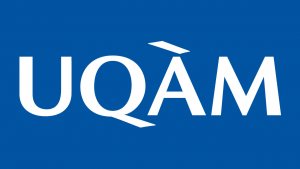Cridaq Postdoctoral Fellowship on Democracy and Diversity

The members of the Centre de recherche interdisciplinaire sur la diversité et la démocratie (CRIDAQ) are offering, for the 2026-2027 academic year, a postdoctoral fellowship of $45,000 (gross amount granted by the Center*), non-renewable. This internship must be used to carry out a project that falls within the scope of CRIDAQ’s research axes and themes under the supervision of one of its members, in a Quebec university.
General rules
- In order to apply, candidates must have defended their thesis by September 1, 2026;
- Candidates must have obtained their Ph.D after April 30, 2022;
- Candidates must have sufficient knowledge of French to participate in CRIDAQ activities;
- The doctoral thesis must not have been written under the supervision of a regular member of CRIDAQ;
- Candidates must not hold a tenure-track position.
The CRIDAQ will offer to its fellow:
- $ 45,000 salary (gross amount granted by the Center*);
- $ 5,000 budget for the organization of a workshop (for example: inviting a researcher, room hire, printing and catering costs, etc.);
- An individual workstation;
- Access to the host university facilities;
- Assistance with the material organisation of the stay.
In return, the fellow is expected to:
- Pursue the research project for which the postdoctoral fellowship was granted;
- Participate, on a regular basis, in the activities (workshops, seminars, conferences, colloquia) organized by the CRIDAQ host university;
- Present their current work to other researchers through the activities of the Center in the host university, as well as in at least one other partner university;
- Provide scientific direction for the Séminaire jeunes chercheur.e.s du CRIDAQ to be held in 2027;
- Ensure a regular presence on the premises of the university to which they are affiliated (at least the equivalent of 3 days a week).
Applications will be evaluated according to the following criteria:
- The quality of the research project submitted;
- The relevance of the research project to CRIDAQ’s mandate (as stated in its research axes);
- The quality of previous research (as evidenced by CV, writing sample and letters of recommendation);
- The ability of the candidate and their research project to benefit from and contribute to the research activities and intellectual life of the Center;
- The ability of the candidate to contribute to CRIDAQ’s international reputation.
Candidates must submit the following documents:
- A letter of motivation, written in French in which the candidate indicates which researchers they wish to work with;
- A curriculum vitae (for submitted publications, please include a confirmation email);
- A writing sample (book chapter, article or academic paper); Note that the work submitted must be written in either French or English;
- A research proposal of about 1500 words, followed by a project timeline (1 page max);
- This form from a regular member of CRIDAQ indicating their interest in supervising the work of the candidate (has to be sent directly to the Centre, by the member of CRIDAQ, by email before the deadline: cridaq@uqam.ca);
- Two letters of reference (directly sent to the Centre by email before the deadline: cridaq@uqam.ca) (written in French or English).
Important dates
- Deadline for applications: January 3, 2026;
- Competition results: March 27, 2026;
- Duration of the internship: September 2026 to June 2027.
Institution
Application date
Duration
1 academic year
Discipline
Humanities : Anthropology & Ethnology, History
Social sciences : Demography, Economy, Geography, Gender studies, Identities, gender and sexuality, International Relations, Political science, Environmental Sciences, Sociology




